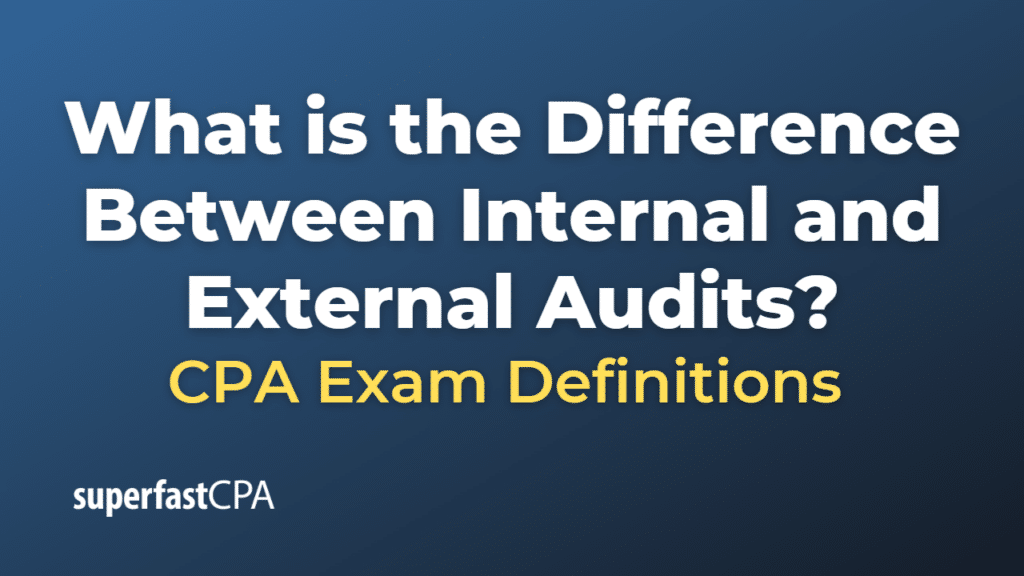Difference Between Internal and External Audits
Internal audits and external audits are integral components of a company’s financial controls system. They both aim to evaluate a company’s financial practices, internal controls, and compliance. However, they differ in terms of their scope, objectives, and who conducts them:
- Internal Audits: Internal audits are conducted by an organization’s own employees or by an external party hired to serve as the internal auditor. The internal audit function is part of the organization, and its purpose is to provide independent assurance that an organization’s risk management, governance and internal control processes are operating effectively. Internal audits typically focus on business processes, internal controls, risk management, and areas of operational improvement. The scope of internal audits is determined by the organization itself and can be quite broad, encompassing any area the organization thinks needs auditing.
- External Audits: External audits are conducted by an independent accounting firm that is not affiliated with the organization being audited. The primary goal of an external audit is to issue an opinion on the fair presentation of the organization’s financial statements. This involves verifying that the statements have been prepared in accordance with accepted accounting principles, and that they reflect the organization’s financial position accurately. External audits are typically required by law or regulation for publicly traded companies and certain types of non-profits and government agencies.
In summary, the key differences between internal and external audits are who conducts them and their primary objectives. Internal audits are performed by an organization’s own auditors and focus on improving internal controls and processes, while external audits are conducted by independent auditors and focus on verifying the accuracy of the financial statements.
Example of the Difference Between Internal and External Audits
Let’s consider a fictional company, “HealthBuddy Inc.,” a manufacturer of fitness equipment.
Internal Audit: An internal audit at HealthBuddy Inc. might focus on assessing the effectiveness of the inventory management process. The internal audit team could review the inventory turnover rates, procedures for recording and monitoring inventory, as well as the measures in place to prevent theft or loss of inventory. If they find any areas of weakness or inefficiency, they would report these to management with recommendations for improvement. This is an example of an operational audit, one type of internal audit, focusing on improving internal processes and controls.
External Audit: On the other hand, an external audit firm is hired to review HealthBuddy Inc.’s annual financial statements. The auditors would assess whether the reported inventory figures, as well as other financial information such as sales, costs, and liabilities, are accurately presented. They would follow auditing standards to test the validity of the transactions recorded in the company’s accounting systems. Their goal is to assure shareholders, creditors, and other stakeholders that the company’s financial statements are reliable. At the end of the audit, the audit firm would issue an opinion on whether the financial statements present a true and fair view of HealthBuddy Inc.’s financial position and performance.
This example illustrates how internal and external audits differ in their focus and objectives. While the internal audit is geared towards improving operations and internal controls, the external audit is designed to provide assurance about the accuracy and fairness of the financial statements.













